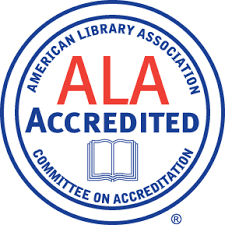Deadlines
- Fall: August 1
- Spring: January 1
- Summer: Rolling
Required Application Materials
- Transcripts from all schools attended
- Three letters of recommendation
- Resume
- Personal statement
The personal statement must be a one page single-spaced essay (12 size font) addressing the following: Thinking back on the school librarians you have encountered during your education, how has the role of the school librarian changed? How do you see yourself as part of that change?
Available information for applicants.
Special Note
This program requires an internship, field experience, study abroad component, or clinical experience. Students who have previously been convicted of a felony are advised that their prior criminal history may impede their ability to complete the requirements of certain academic programs and/or to meet licensure requirements for certain professions. If applicants have concerns about this matter, please contact the Dean’s Office of the intended academic program.




